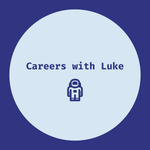Very few people know this, but Beyonce was actually a recruiter before she shot to superstardom.

Well, maybe not... but her song Halo is be a great reminder for recruiters, hiring managers or interviewers. Beware, the halo effect.
Halo Effect
What is the Halo effect?
The halo effect is a cognitive bias that occurs when a person's overall impression of someone or something affects their judgments about that person or thing in specific areas.
In other words, if someone has a positive overall impression of a person, they may also rate that person more positively in other areas, even if they don't necessarily deserve it.
Conversely, if someone has a negative overall impression of a person, they may also rate that person more negatively in other areas, again, even if they don't necessarily deserve it.
How does the Halo effect impact Job Interviews?
The Halo effect can impact interviewing in a number of different ways, but here are the most common examples:
Attraction: If a candidate is physically attractive, the interviewer may be more likely to rate them highly on other traits, such as intelligence or work ethic.
Or as Beyonce says: "You're everything I need and more, It's written all over your face"
Great on Paper: If a candidate has an impressive resume, the interviewer may assume they are a better fit for the job than they actually are.
Or as Beyonce says: "You're the only one that I want, Think I'm addicted to your" ... resume
Charisma: If a candidate has good communication skills, the interviewer may assume they are more knowledgeable than they actually are.
Or as Beyonce says: "You're the only one that I want, Think I'm addicted to your light"
How can you guard against Halo effect in the interview process?
To guard against Halo effect in the process, there are a few steps you can take.
- Develop a structured interview process that focuses on specific job-related criteria, rather than overall impressions or gut feelings.
- Use objective evaluation tools, such as standardized interview questions or rating scales, to help reduce subjective bias.
-
Train interviewers to be aware of their own biases and to actively work to overcome them.
- Use multiple interviewers to evaluate candidates, which can help reduce the impact of individual biases.
- Ask specific questions that are designed to test the candidate's knowledge and skills in areas relevant to the job.
Remember, the first step to counteracting bias is understanding that we all have them. Great hiring processes can ensure that you limit the influence of bias and build a fair, transparent and effective system for hiring great talent.
Have you ever noticed Halo effect in an interview or process before? How did you counteract it?
